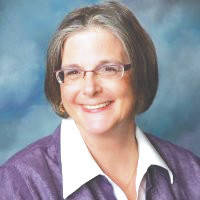
We all look in the mirror and imagine a younger version of ourselves looking back at us. My husband always says that he sees his 25-year-old face in the mirror. This mindful image can be discouraging, yet motivating. The daily resurrection of 25-year-old hopes and dreams, and energy sometimes is the only thing that gets us through the day.
Unfortunately, reality is not as kind. Skin dries out, faces sag, and bodies change their shape. It is the privilege of getting older. Considering the alternative, I appreciate this aging frame.
Changes in hormone levels cause confusing reactions in our bodies starting around the age of 50. Plunging levels of sex hormones wreak havoc on our bodies. As estrogen, progesterone and testosterone fluctuate, the body tries to compensate by collecting more abdominal fat cells that actually make more hormones. Fat accumulates to make up for the aging process.
Metabolism determines how quickly the body burns fat and calories. As we get older, our metabolism rate slowly decreases. Muscle mass and hormone production go into a decline, and the ability to burn the same amount of fat and calories reduces. Yet, we still consume the same amount of food and fluids but use less of the energy it produces.
Exercise is vital to maintain a healthy weight and muscle mass. The old adage, “If you don’t use it, you lose it” applies in this circumstance. It is a vicious circle. Aging fatigues the body with decreased flexibility and motivation. The muscles weaken. Muscle strength determines the type and frequency of exercise. Without exercise, the muscles continue to weaken and less movement is attempted. Pounds creep on because metabolism continues to decrease. Keep moving, muscle mass matters.
With less activity and a variety of medications, sleep cycles are interrupted. Hormonal changes that result from a lack of sleep can increase hunger and makes it more difficult to control eating binges. Irregular sleep patterns can also affect the hormones that dictates belly fat. Blood sugar regulation is more difficult with a lack of sleep. This can stress your body and increase the potential for fat storage and the risk of Type 2 diabetes.
Controlling intake and food choices are not always the cause or the best treatment for Type 2 diabetes. A sleep study and regular sleep patterns can regulate blood sugars as your body ages.
So, it’s not just your imagination. Your body is changing. That in itself isn’t any cause for alarm, but it is important to remember that some changes if not kept in check can lead to serious chronic health problems. Don’t shame yourself into dieting or feel guilty because your body doesn’t look 20-something. Your goal at this point is maintaining a quality of life without avoidable chronic health issues.
I tell my husband that the person that he sees in the mirror is not as handsome as the man that I look at every day. Aging is not a bad thing, but it can get ugly without exercise, good sleep and healthy foods.


